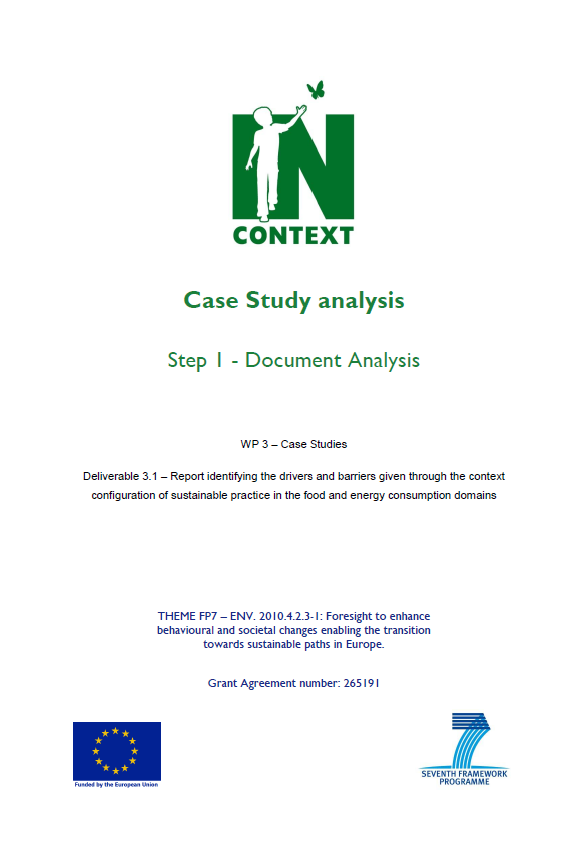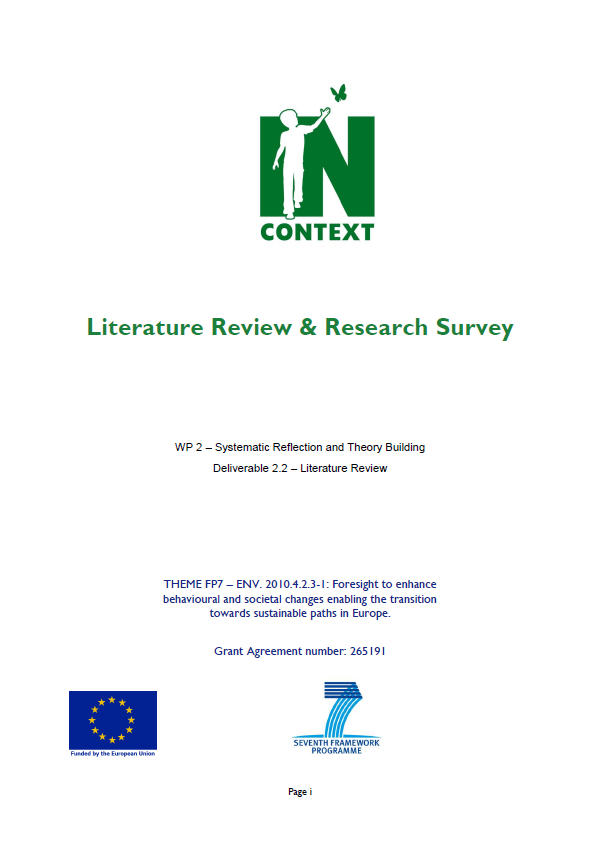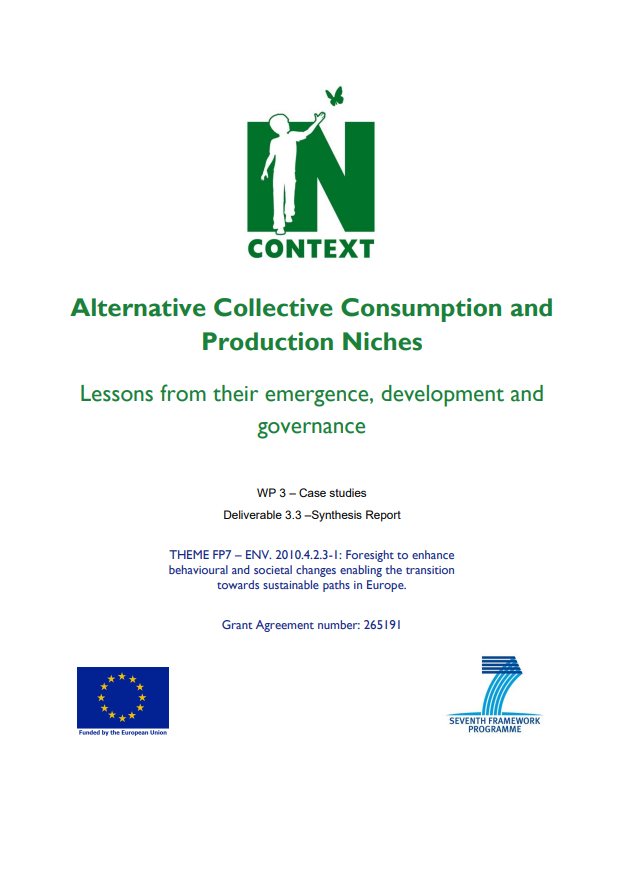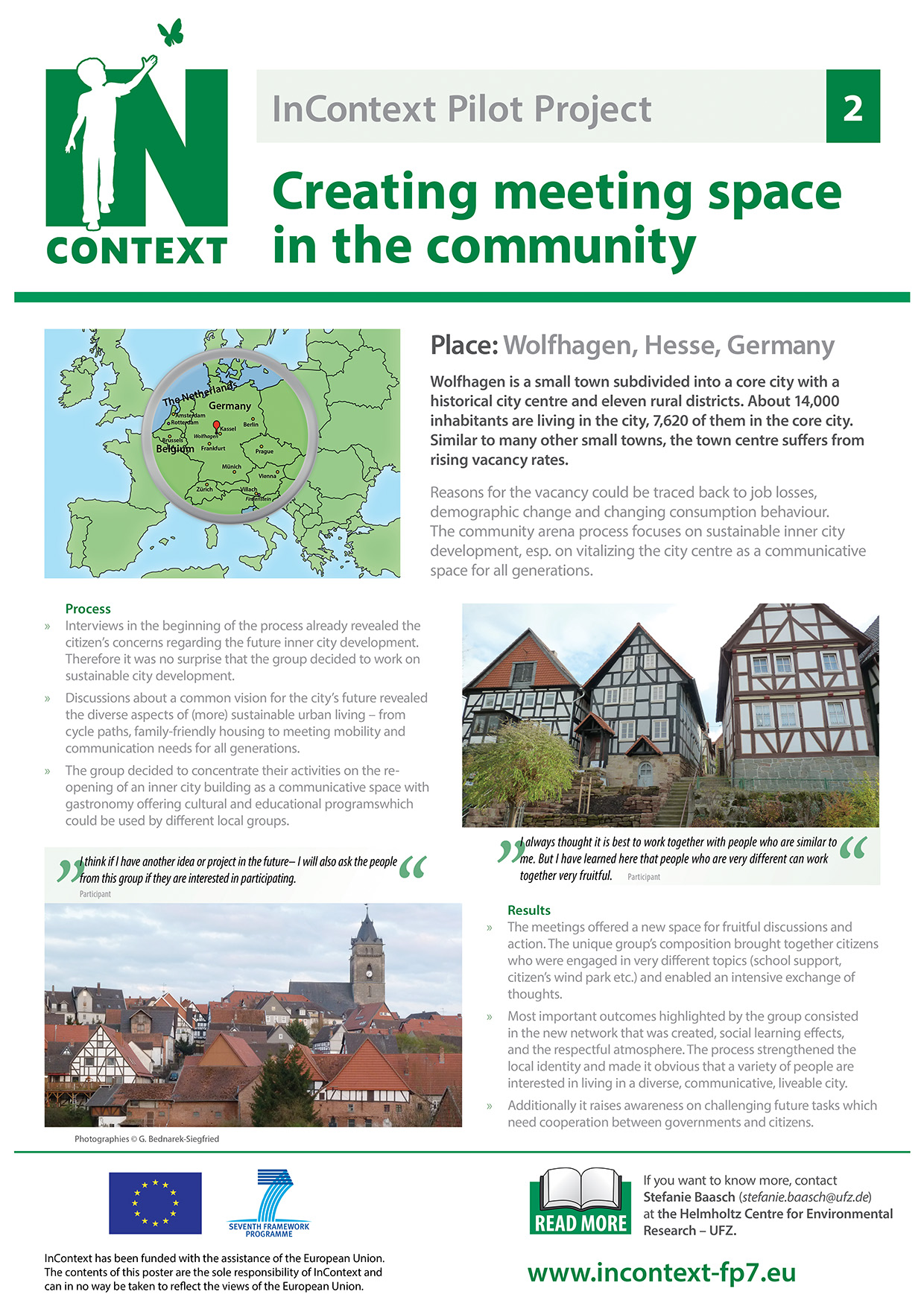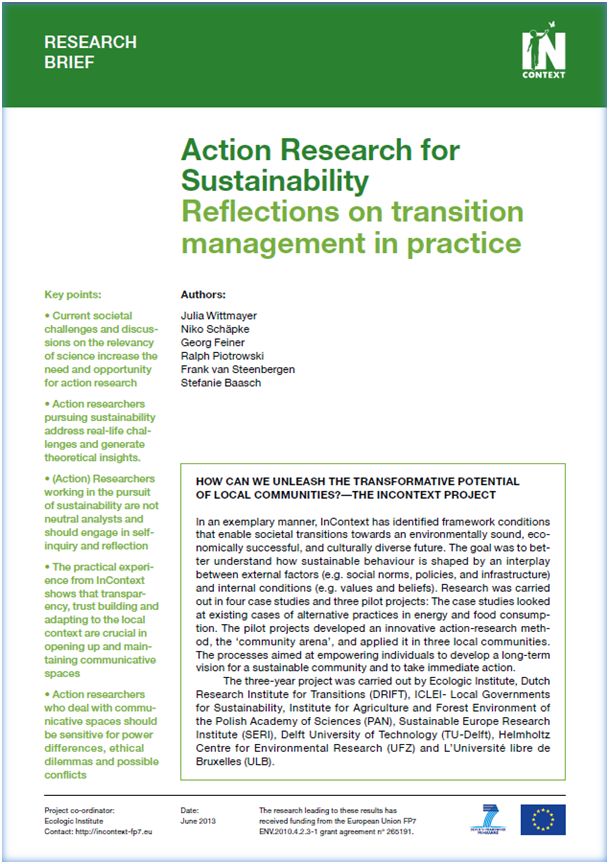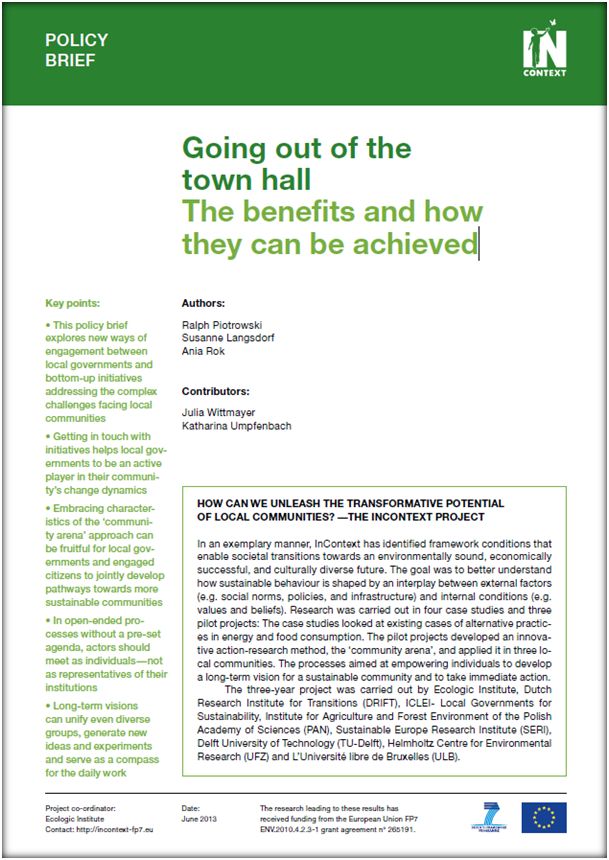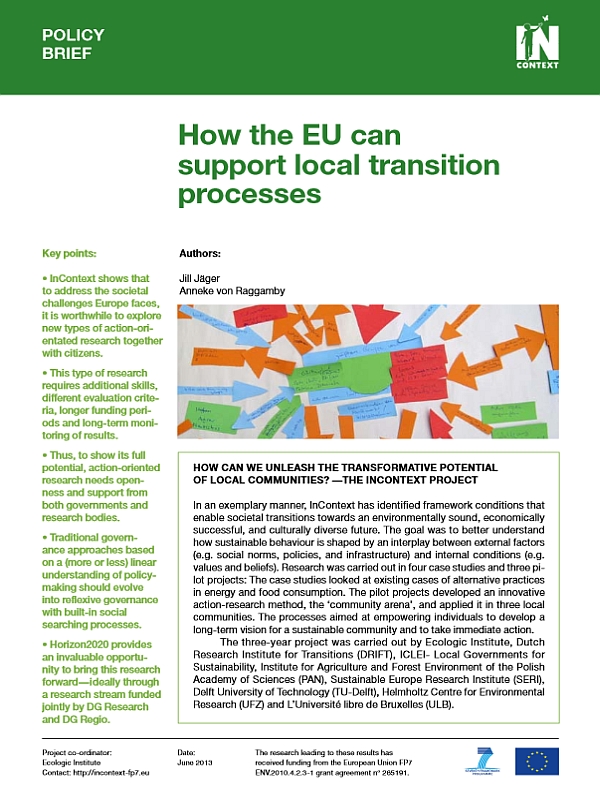InContext Case Study Analysis
- Publication
- Citation
Baasch, Stefanie et al. 2012: Case study analysis: document analysis. [InContext Deliverable]. Berlin: Ecologic Institute.
This report presents a document analysis on the four case studies that build on the InContext project’s WP3. The general purpose is to provide a better understanding on how niches of alternative more sustainable consumption and production practices are created, and how they can later be diffused or mainstreamed.
- Language
-
English
- Authorship
-
Haran Bar-OnKatharina UmpfenbachStefanie Baasch (Helmholtz Centre for Environmental Research)Ariane Debourdeau (L'Université libre de Bruxelles)
- Funding
-
European Commission, Directorate-General Research (DG Research), International - Published by
-
Ecologic Institute, Germany - Year
- Dimension
- 152 pp.
- Project
- Project ID
- Table of contents
-
Click to show full table of contents
1 Executive summary
2 Introduction
3 Case study n°1: Gela (Gemeinsam Landwirtschaften), Vienna, Austria
3.1 Methodology
3.2 Content Analysis
3.2.1 Overall aim of the project
3.2.2 Actors and motivations
3.2.3 Process description and timeline
3.2.4 Future steps
3.3 Background to the niche development
3.3.1 Overview of the niche development in other contexts
3.3.2 First screening of the policies and legislations in the relevant policy field/s
3.4 Discussion of outcomes
3.4.1 Drivers and barriers for producers (farmers)
3.4.2 Drivers and barriers for Consumers
3.5 Study current and past diffusions
3.6 Governance (Sub-questions)
3.6.1 External governance
3.6.2 Internal governance
3.7 Summary
4 Case study n° 3: Wolfhagen 100% REC
4.1 Methodology
4.1.1 Overall aim of the project
4.1.2 Actors and motivations
4.1.3 Process description and timeline
4.1.4 Future steps
4.2 Discussion of Outcomes
4.3 Governance (Sub-questions)
5 Case Study n° 3: ‘Thursday Veggie Day’, from Ghent to Brussels
5.1 Methodology
5.2 Content Analysis
5.2.1 Overall aim of the project
5.2.2 Actors and motivations
5.2.3 Process description and timeline
5.2.4 Future steps
5.3 Background to the niche development
5.3.1 Overview of the niche development in other contexts
5.3.2 First screening of the policies and legislations in the relevant policy field/s
5.4 Discussion of Outcomes
5.5 Study current and past diffusions
5.6 Governance (Sub-questions)
5.6.1 External governance
5.6.2 Internal governance
5.6.3 Interplay between external and internal governance
5.7 Summary
6 Case Study n° 4: ‘Emissions-Zero’ (EZ) Cooperative in Belgium
6.1 Methodology
6.2 Content Analysis
6.2.1 Overall aim of the project
6.2.2 Actors and motivations
6.2.3 Process description
6.2.4 Future steps
6.3 Background to the niche development
6.3.1 Overview of the niche development in other contexts
6.3.2 First screening of the policies and legislations in the relevant policy field/s
6.4 Discussion of Outcomes
6.5 Study current and past diffusions
6.6 Governance
6.6.1 External governance
6.6.2 Internal governance
6.6.3 Interplay between external and internal governance
6.7 Summary
7 ANNEXES
7.1 Annex 1: Documents collected for analysing the ‘Emissions-zero cooperative’
7.2 Annex 2: References (url) used for Thursday Veggie Day mapping
7.3 Annex 3: R.K. Pachauri decisive catalyst for Thursday Veggie Day project – Conference hold at Ghent Uni., 2008.08.30
7.4 Annex 4: Meat consumption, an issue during WW1 & 2
7.5 Annex 5: Documents collected for analysing the ‘Emissions-zero cooperative’
7.6 Annex6: REScoop charter
7.7 Annex 7: EZ objectives: 500 wind turbines in Wallonia in 2020
7.8 Annex 8: Wind cooperatives experiences in some European countries
7.9 Annex 9: Wind cooperatives in Belgium
7.10 Annex 10: Wind power in Belgium: evolution over time and by type of operator
7.11 Annex 11: Public-private-citizen partnership according to J.-F. Mitsch from EZ cooperative
7.12 Annex 12: Wind turbine financing
7.13 Annex 13: REScoop ‘Shared Energy Charter’ - Keywords
-
Europe, Netherlands, Austria, Carnisse, Wolfenhagen, Finkenstein, Gänserndorf, Les Vents d'Houyet, Belgium, Gent, Brussels
